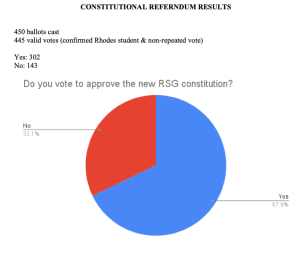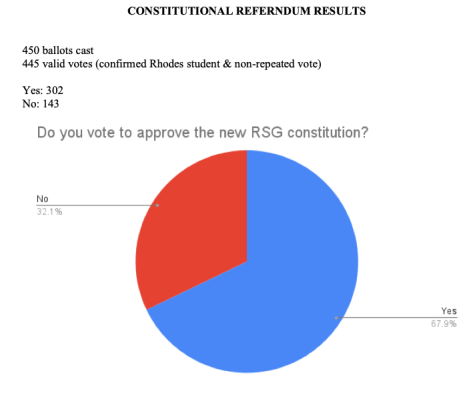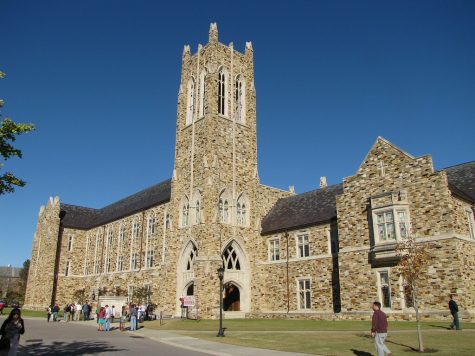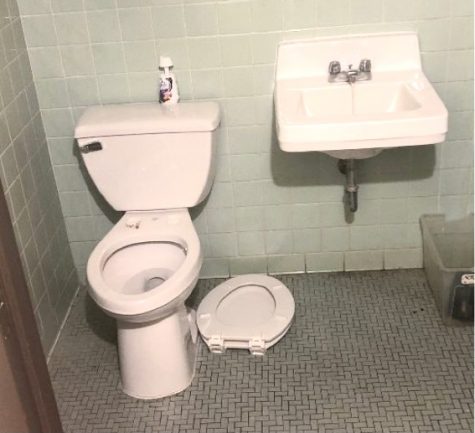Due process, sealed records: Rhodes College and expelled students settle Title IX lawsuits
August 7, 2019
Two Title IX lawsuits against Rhodes College brought by former male students appear to have ended in settlement agreements.
Both lawsuits focused on a reported sexual assault that took place on Feb. 14, 2019 at the SAE house. Police notified the college and it subsequently initiated a Title IX investigation. Upon completing the investigation, Rhodes convened a Sexual Misconduct Hearing Board on Apr. 17. The hearing found the two students responsible for non-consensual sexual penetration. The students appealed the Board’s decision, but it was affirmed by a separate appeals Board. Rhodes expelled both students.
Within a week of each other, the two students, identified as John Doe and John Coe, filed lawsuits against Rhodes alleging violations of their Title IX rights. Both students argued that Rhodes was under substantial outside pressure to punish fraternity members, a universally male group.
Both complaints listed what they believed to be procedural irregularities, which cast doubt on the accuracy of the outcome of the sexual misconduct hearing. This included a failure to consider evidence presented by the male students, a failure of the hearing panel to base its decision of firsthand testimony, presentation of last-minute evidence and ignoring the standard of preponderance of the evidence, according to the lawsuit.
Both students argued that they were denied a fair hearing because of the panel’s failure to permit direct or cross-examination of the alleged victim. Current Rhodes policy does not require either type of examination if the alleged victim is not present at the hearing.
Both students sought to purge their academic records of any reference to a finding of sexual assault or a record of expulsion, and, in Doe’s case, award him up to $5 million. However, the terms of the both agreements will not be made public.
In Coe’s case, both Coe and Rhodes filed a joint stipulation to voluntarily dismiss the case with prejudice.
According to Brooklyn College Professor K.C. Johnson, this was the 71st federal lawsuit brought by an accused student to settle before any decision was made in the case since the 2011 ‘Dear Colleague’ letter.
Doe had a hearing on his motion to stop Rhodes from enforcing his expulsion and to allow him to receive his degree, presuming all his remaining graduation requirements are met.
On Jun 14, the Court filed an order which granted the first part of Doe’s motion. Now considered to be the a first-in-the-nation ruling, the judge suggested a private institution can violate due process standards when a lack of cross examination puts a decision’s accuracy in doubt.
“When a disciplinary decision relies on any testimonial evidence in a case where credibility is in dispute and material to the outcome, due process requires an assessment of credibility through cross-examination,” U.S. District Judge John T. Fowlkes Jr. wrote.
“It seems the Panel resolved credibility issues without seeing or directly hearing from” the accuser. According to Fowlkes, Doe “presents facts sufficient to cast some articulable doubt on the accuracy and reliability of the disciplinary proceeding’s outcome and satisfies the first consideration of an erroneous outcome claim under Title IX.”
After the ruling, many legal commentators noted the significance of this first implementation of a due processes precedent set by the Sixth Circuit in a Title IX case against a private institution.
“The significance, however, of this order is tempered because it is very early in a single case in a lower court, and while it is likely to be referred to by plaintiffs in other matters it isn’t precedent yet. Substantially the Court didn’t articulate their basis for applying due process protections which are afforded to students at public institutions under the 14th Amendment,” President of Safety Advisors for Educational Campuses S. Daniel Carter said.
Accused students at private schools have historically been owed a fair process, “rather than the more stringent protections of due process.”
“A system that lacks due process harms both accusers and the accused. More fundamentally, schools should not be in the business of adjudicating sexual assault,” Executive Director of People for the Enforcement of Rape Laws Meaghan Ybos said.
Once Doe’s expulsion was lifted, Rhodes changed his student status to “interim suspension status” based on a second misconduct allegation made against him prior to his hearing. Rhodes had previously chosen to not pursue the allegation but chose to re-initiate the process after Doe filed his lawsuit.
During Doe’s hearing the Judge asked Rhodes’ counsel why the second investigation was placed on hold.
Rhodes’ counsel responded in part, “To ensure the lack of bias, to ensure the lack of infiltration from one case to another, to ensure that [t]here is not character evidence infiltrating where a panel is making a wrong decision…That’s what we’re preventing against.”
Later on, Rhodes’ counsel explained that Rhodes is unable to impartially manage two simultaneous Title IX processes concerning the same accused student:
THE COURT: So, your hearing panels can’t base a decision on the facts and the law in front of them? Is there that much of a chance that a new panel would be influenced by another proceeding?
COHEN: Your Honor, we don’t want to bring two cases simultaneously involving two different victims and risk the due process argument that that cross-pollination has poisoned either or both resolutions. If someone is accused of committing two sexual assaults with two different testimonies, two different witnesses, two different fact patterns, two different points in time, the panel may not be sure on the first case. I mean you know that that’s the argument that Mr. Timmons would make.
THE COURT: I assume it’s the same panel then?
COHEN: No, it would not be the same panel.
THE COURT: So, it would be a different panel hearing a different case?
COHEN: Yes, it would.
THE COURT: What about this cross-pollination you’re talking about? Where does that occur if you have a different panel?
COHEN: It does not. That is exactly the due process protection we put in place. The second sexual assault case would be—we would need for that to go forward.
THE COURT: I don’t know why you stopped it in the first place; but, anyway, go ahead. I interrupted you.
COHEN: And I apologize if I wasn’t clear. So I’ll try to see if I can be more clear. The concern is that if—it’s a concern related to character evidence. Our proceedings do not allow character evidence. We don’t want someone to be expelled, punished, disciplined in some way, shape, or form because he or she was a bad person or that someone could not have committed a sexual assault because he or she a good person. Our concern from a due process standpoint procedurally is that if we brought two cases simultaneously that there would be the potential for cross-pollination. I’m not sure about the first case. I think so in the second case. Gosh, two different women wouldn’t be making the same allegation. Therefore, we expel him. We protect against that, and so we did bifurcate these two. We allowed the first hearing to go forward, and then if he was not cleared on the first hearing, then the second victim has her chance. That is an independent process from the first process.
Doe had a second hearing regarding conferring his degree on Jul. 17. Rhodes’ witnesses included Title IX coordinator Tiffany Cox, Professor Anna Eldridge and Professor Shantih Geary Smythe, according to the court docket.
A week later, the judge issued a ruling on the matter. Unlike the first order, this one was filed under seal. On Aug. 2, Rhodes filed a joint motion to place under permanent seal all documents containing “confidential information affecting the privacy rights of Plaintiff and other persons involved in the factual events giving rise to this litigation.”
The motion also asked that the Court’s first and most recent order on Doe’s preliminary injunction be permanently sealed, included associated hearing transcripts.
“It’s rare, to begin with, for opinions to be sealed in this area,” Johnson said. “I’ve seen cases where the entire docket was sealed due to a protective order, but the opinion wasn’t. It was the only way to see what was going on.”
“There was a case last year at Southern Miss that was sealed until the opinion came out, and that led to the docket being opened. I am only aware of one federal case in this area where the opinion, and the entire docket, unlike here, was sealed.”
On Aug. 5, the Court granted the joint motion to seal. The next day, Doe notified the Court that the matter has been resolved and that both parties stipulate to dismiss the case with prejudice.
In a statement released Aug. 6, Rhodes announced the lawsuit had been resolved: “We can report that the case has been resolved. Rhodes College is committed to the well-being of its students, upholding the law, and ensuring a safe learning environment that supports all members of our community.”
“We are pleased that the matter is resolved and our client is looking forward to moving on with his life,” Doe’s attorney Brice Timmons said.
NOTE: A previous version of this story inaccurately suggested that alleged victims are not required to undergo direct or cross examination even if present at the hearing. The story has been updated for accuracy.














